Resume Icons, Logos & Symbols [100+ to Download for Free]
We’ve combed the Internet to select 100+ best resume icons. They’re all FREE to download and ready to use on your resume. Check them out now!
![Medical Coder Resume Sample & Guide [20+ Tips]](https://cdn-images.zety.com/pages/medical_coder_resume_example_3.jpg?fit=crop&h=650&q=75)
Break the code of writing a job-winning medical coder resume and open your way to getting a new job. Follow our tips and get that interview.
Just like you recognize medical codes in a split second, recruiters can tell good resumes from bad ones at a glance.
Luckily, there’s a foolproof way to ensure your medical coder resume lands in the ‘approved’ pile straight away.
This guide will show you:
Want to save time and have your resume ready in 5 minutes? Try our resume builder. It’s fast and easy to use. Plus, you’ll get ready-made content to add with one click. See 20+ resume templates and create your resume here.
Sample resume made with our builder—See more resume examples here.
Looking for some more inspiration on how to write a resume for a healthcare professional?
Check out these:
Michael Lee-Rodgers
Certified Medical Coder
920-201-0683
linkedin.com/in/michaelleer
Summary of Qualifications
CPC®-certified medical coder with 5+ years of professional experience in application and evaluation of various code sets. In previous roles abstracted and assigned ICD and CPT codes to patient medical records, maintaining 97% accuracy per 150 daily claims. Seeking to leverage coding guidelines knowledge and strong analytical skills to implement smooth coding service at NY Metropolitan Hospital.
Work Experience
Medical Coder
Western State Hospital, Jamestown, VA
July 2016–January 2019
Key Qualifications & Responsibilities
Key Achievement:
Medical Coder
Medic Virginia Clinic, Jamestown, VA
January 2014-July 2016
Key Qualifications & Responsibilities
Education
BA of Medical Information Technology
University of Jamestown, Jamestown, VA
September 2011-June 2014
Skills
Certificates
Conferences
Here’s how to write a medical coder resume that proves you’re a perfect fit for the position.
In the world of medical coding, there’s nothing more important than keeping things universal.
Every day you follow the right structure to help both people and machines read the same language.
Job-winning resumes? They also need a structure.
Here’s how to keep your medical coding resume format well-structured and universal:
Pro Tip: If you wonder which one is better—saving your resume in PDF or Word, stick to the PDF. Unless the company specifically asks for a Word doc.
Going through hundreds of resumes gives the recruiters a splitting headache.
Make their task easier and give them the right code at the top of the page.
Start your resume with a professional profile—a catchy opening paragraph that summarizes your proudest career gigs.
It can be either a resume summary, or resume objective:
Use a resume summary if you’re in the healthcare business for more than two years. It wraps up your key achievements and relevant moments of your work history.
Go for a resume objective if you target entry-level positions. It will help you showcase your skills and things you’ve learnt on courses or during internships. You can also use it to show the future employer why you’re motivated to work for them.
Pro Tip: Your resume profile is to sum things up for the recruiter. State your certification level and classification systems you know. E.g: “Certified Outpatient Coder with 3+ years of experience in CPT®, ICD-10, and HCPCS Level II coding.”
Writing a successful medical coder job description is the keystone part of your application process.
So create a resume experience section that matters.
How to achieve this?
By tailoring a resume to a job and following these useful tips:
Pro Tip: Efficiency and correctness—it’s hard to combine the two. So show the hiring manager that you can do it. Make your achievements quantifiable to catch the recruiter’s eye.
Whether you want to be a trainee coder or nosologist, you need to make your education resume section shine.
The education requirements vary depending on the level of the position and the employment setting.
But one thing is certain—the recruiters want to know what you’ve learnt and where you’ve learnt it.
Pro Tip: Medical coding is not only about remembering the strings of numbers and letters. It actually requires a solid medical terminology knowledge. Where to gain this know how? Consider joining medical training organizations such as AAPC, a credentialing body for healthcare professionals.
Don’t make the hiring managers decode your skills from a dragging list of everything you can do.
Instead, pick out only these skills that correspond to your future job.
Since coding requires a set of hard skills and technical skills, focus on these first.
Then think of any soft skills you’re proud of (consult the job ad to see what the recruiter requires, too).
Pro Tip: Writing a resume with no experience in the healthcare business? Think of the skills you gained in non-medical jobs. Then tailor them to what’s valid for the coding vacancy: speed typing, backing-up data, error spotting, organization skills, familiarity with legal regulations.
When making a resume in our builder, drag & drop bullet points, skills, and auto-fill the boring stuff. Spell check? Check. Start building a professional resume template here for free.
When you’re done, Zety’s resume builder will score your resume and tell you exactly how to make it better.
All the above? These are more than necessary.
But adding an extra section to your medical coding resumes can really make a difference!
Consider the following:
If you think to yourself: do I have to send a cover letter?
The answer is simple: yes, you do!
Sending a medical coding cover letter will be a nice code-switch.
Plus, about 50% of the recruiters still expect you to submit one.
If you want to write a job-winning cover letter follow these tips:
Pro Tip: Wondering how long should a cover letter be? Keep it between 250 and 300 words. That’s less than one page.
Plus, a great cover letter that matches your resume will give you an advantage over other candidates. You can write it in our cover letter builder here. Here's what it may look like:
See more cover letter templates and start writing.
That’s it!
You’ve just broken the resume writing code.
Did you like this medical coding resume example? Are you writing entry level medical coder resumes or maybe targeting a senior position? We’d love to hear from you, leave your comment below!

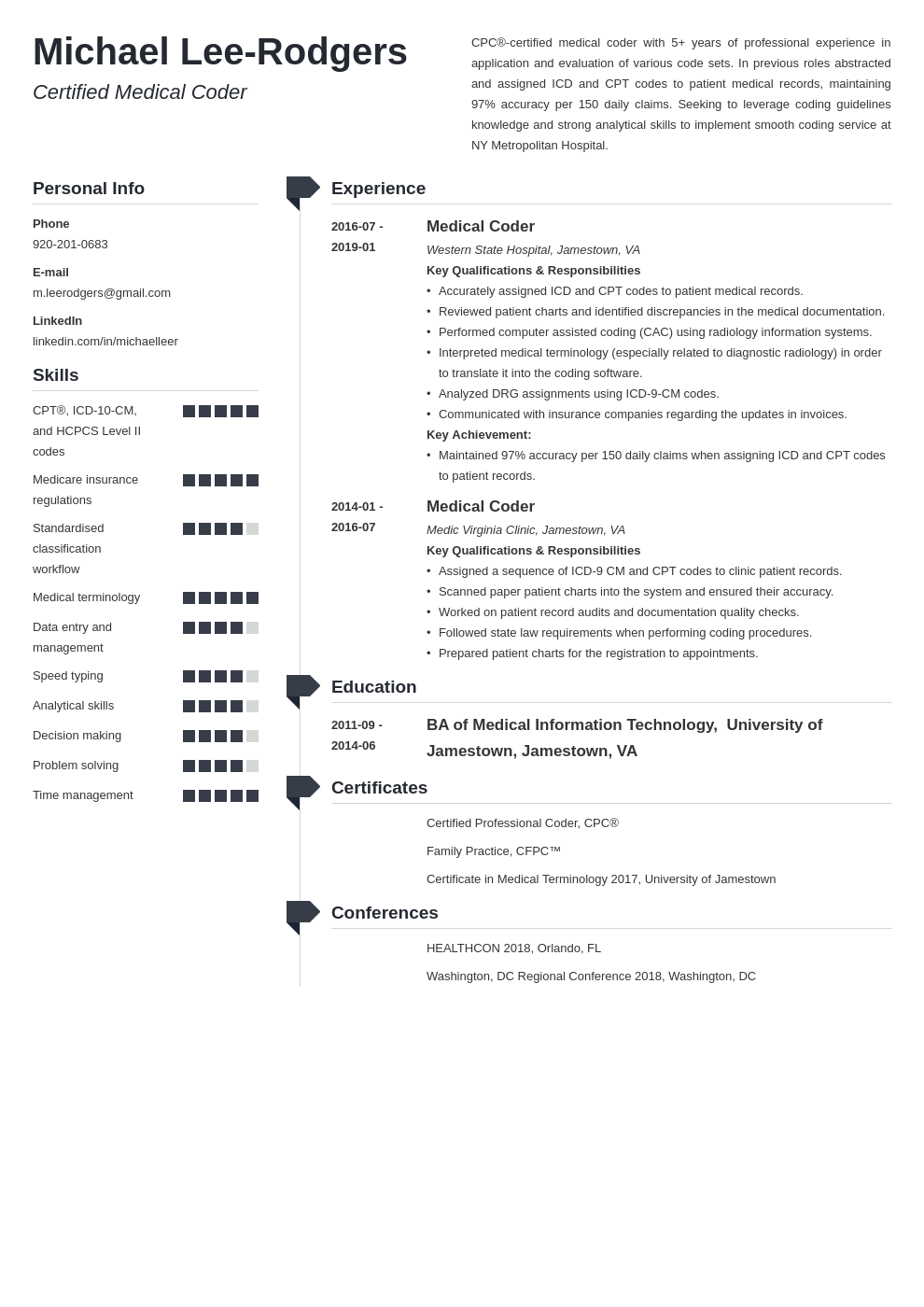
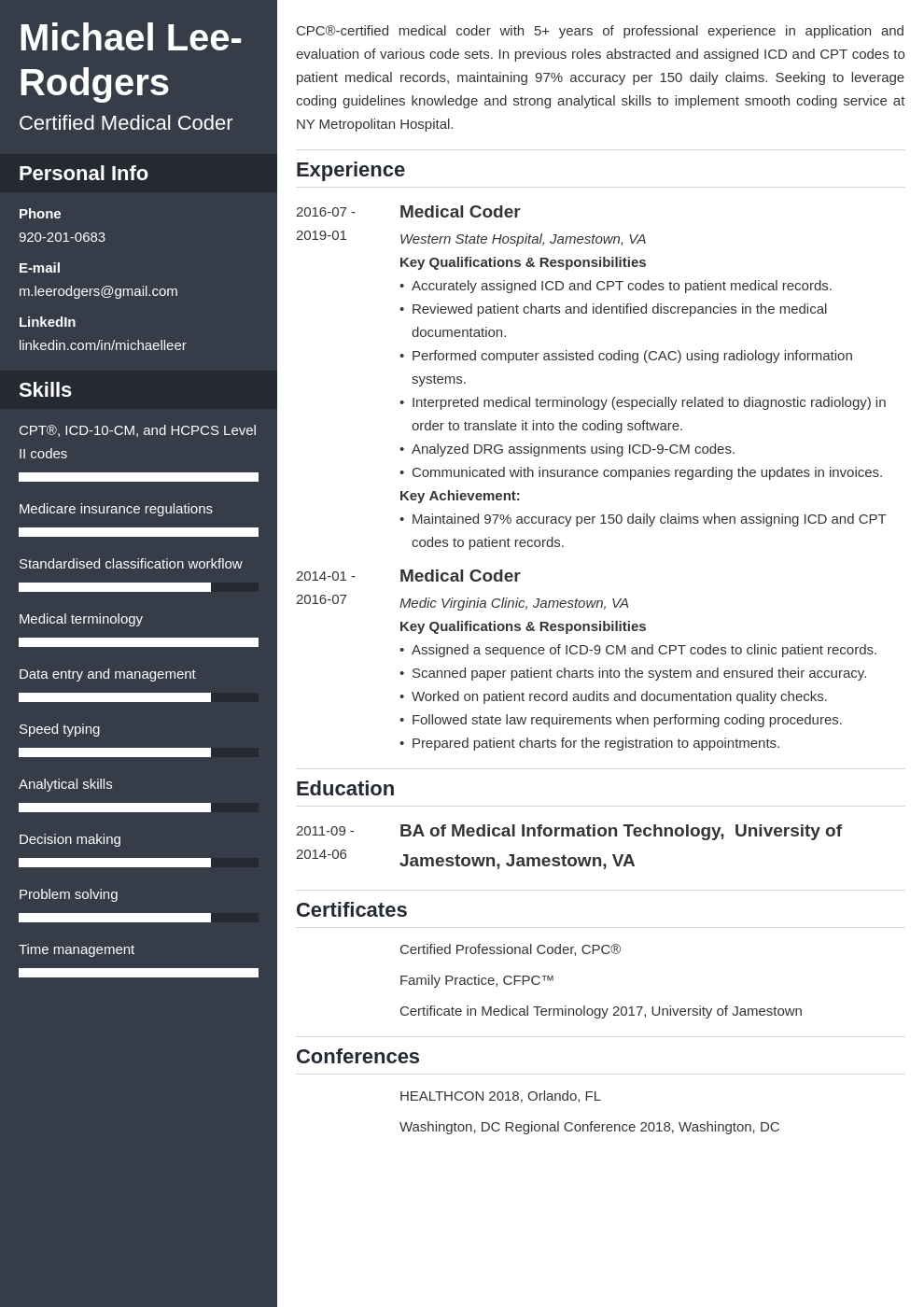
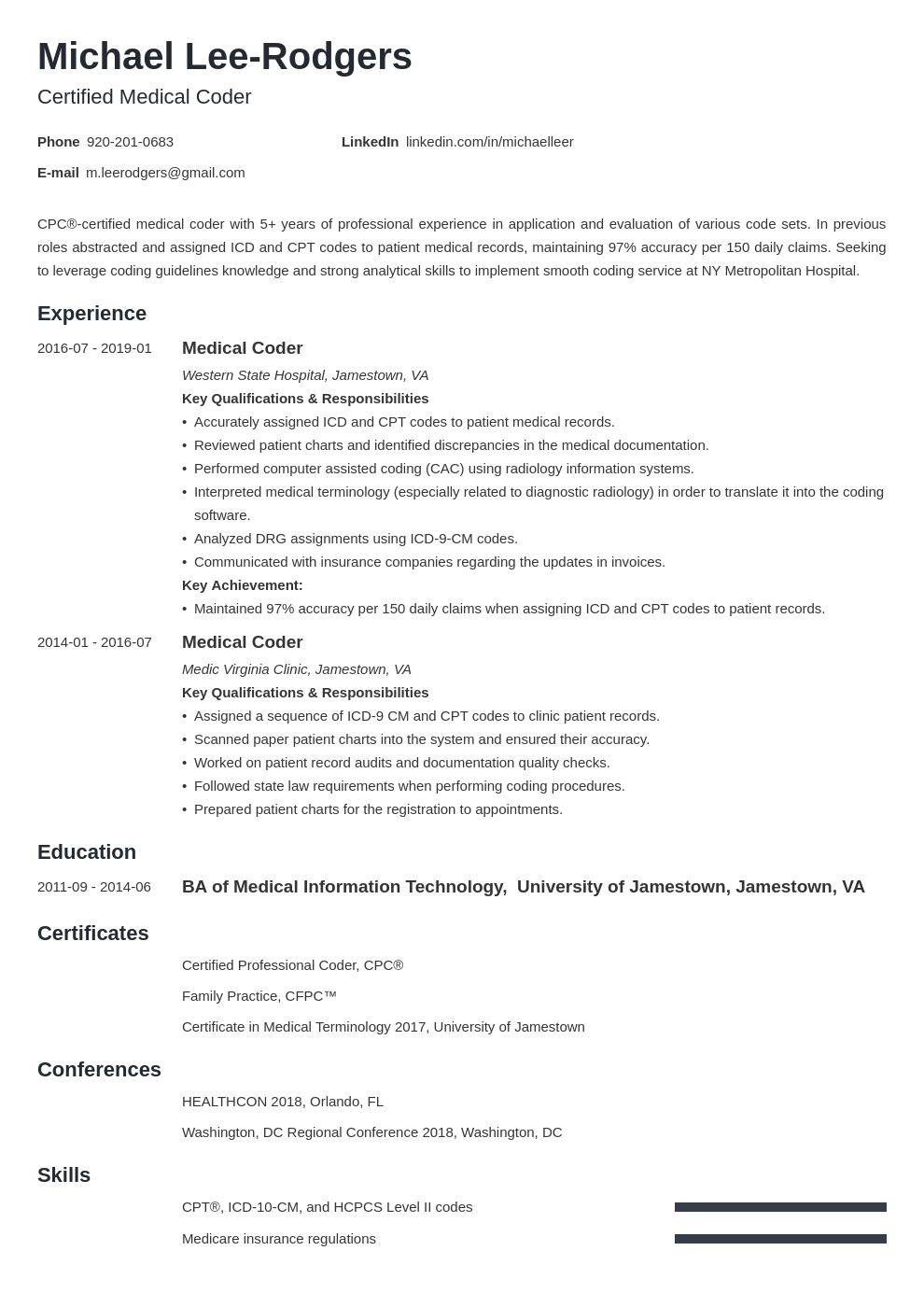
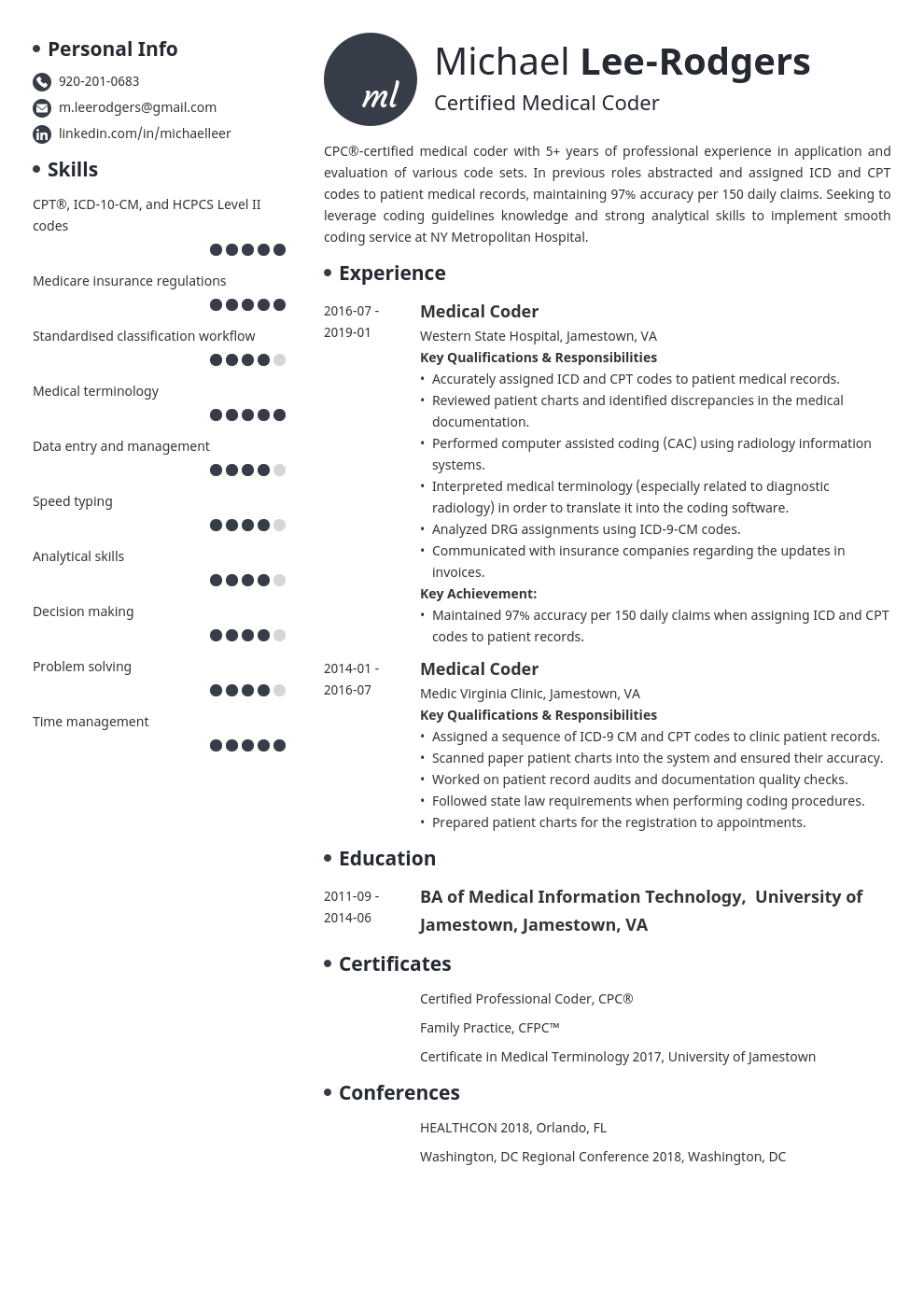
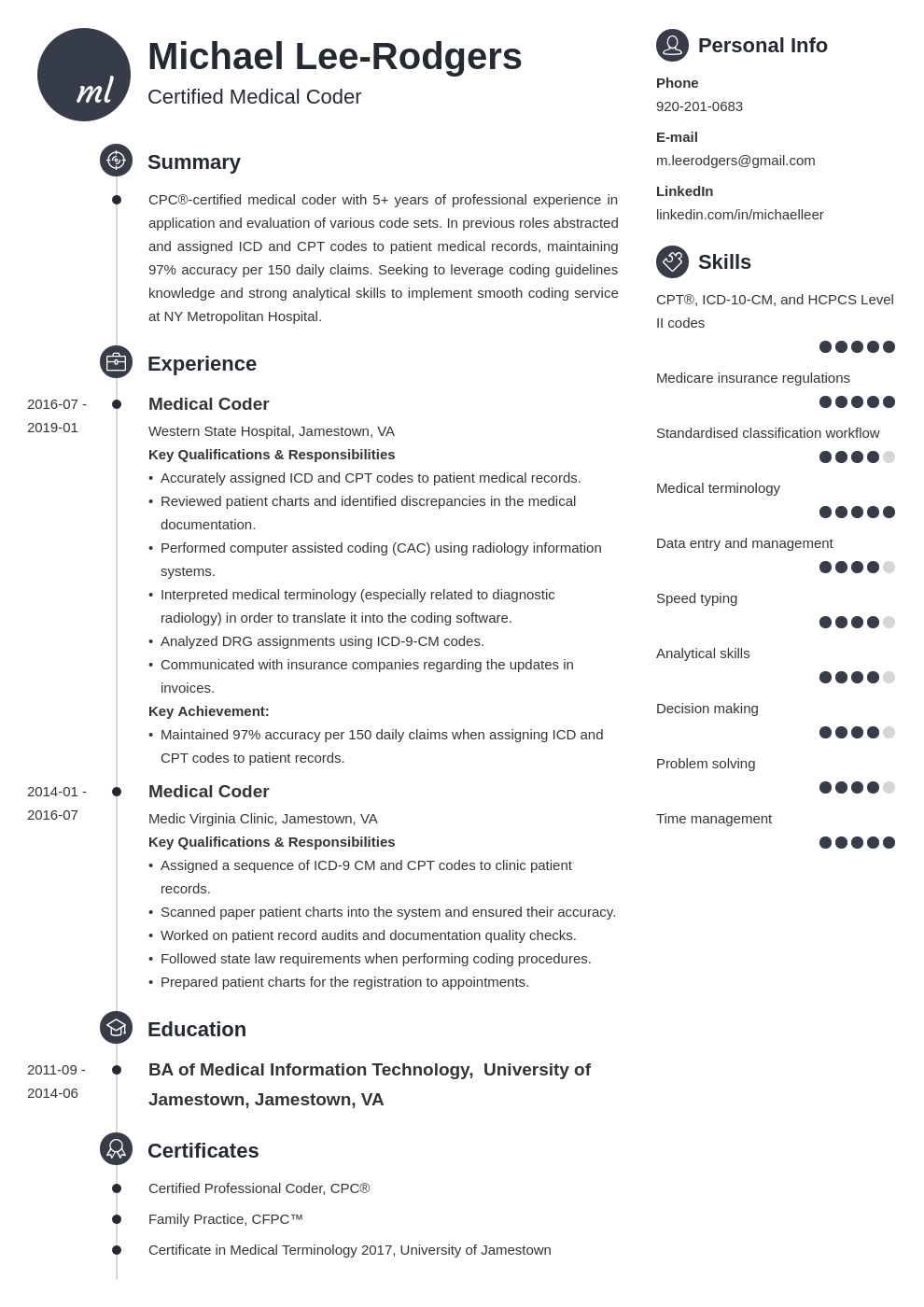
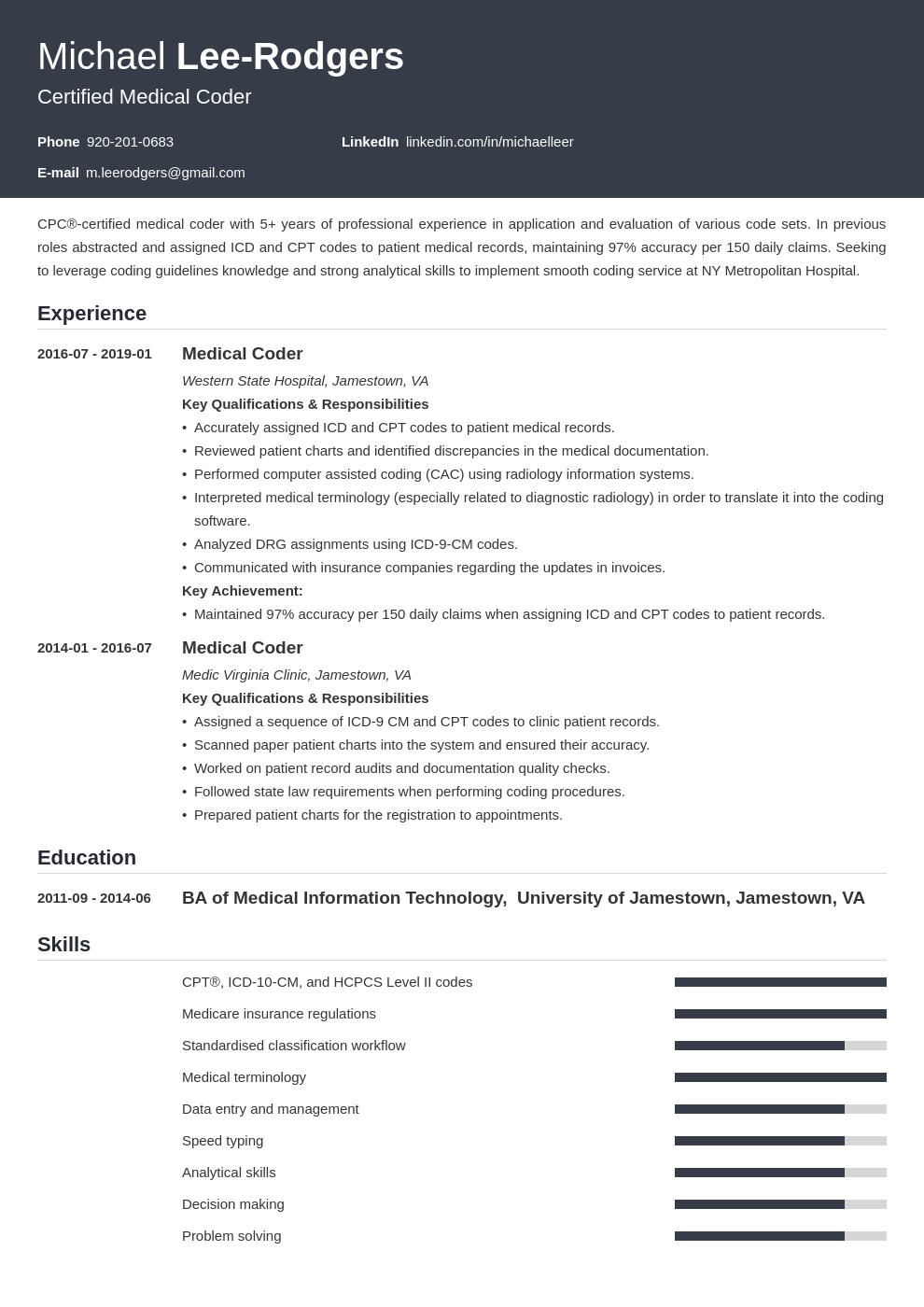
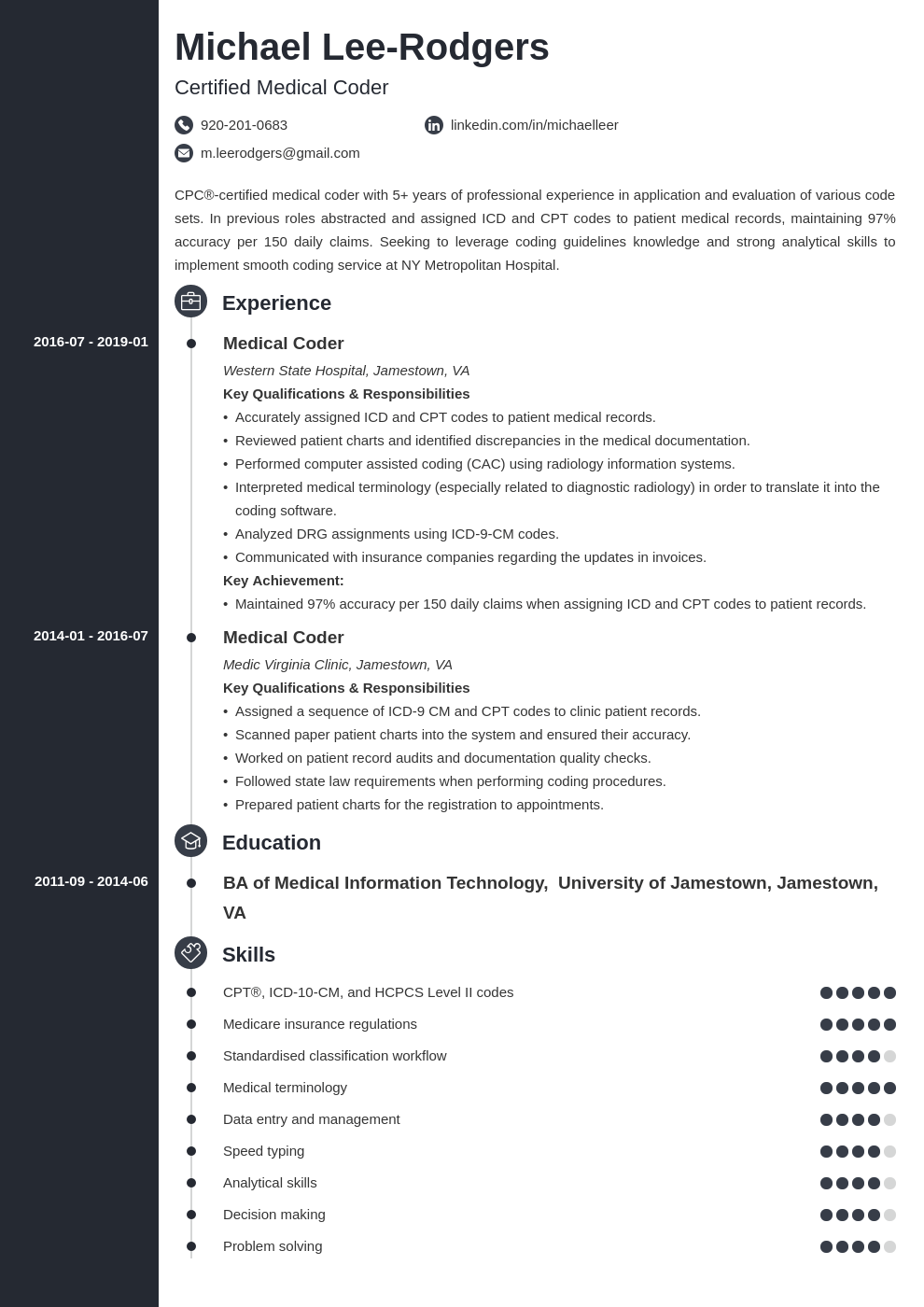
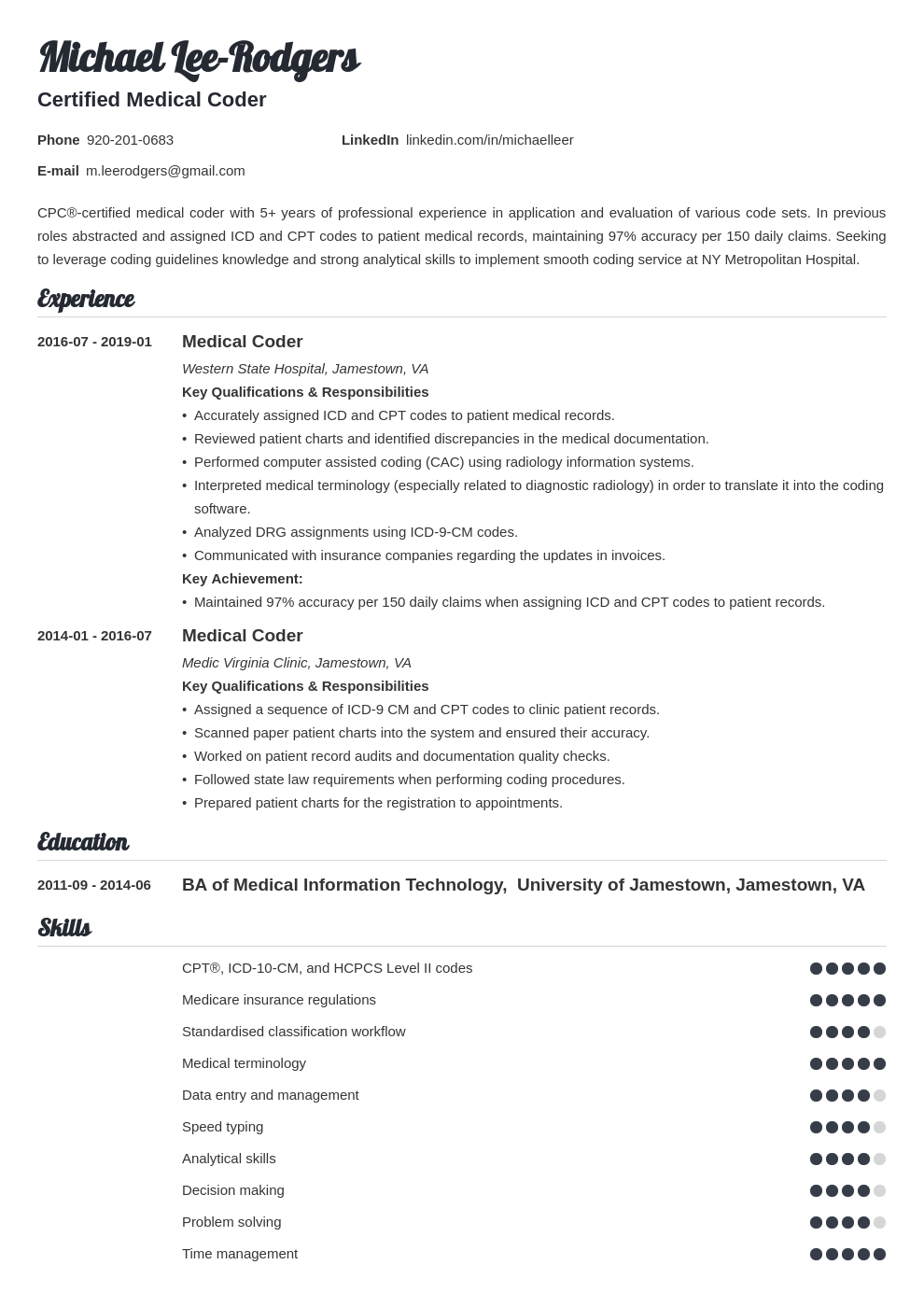
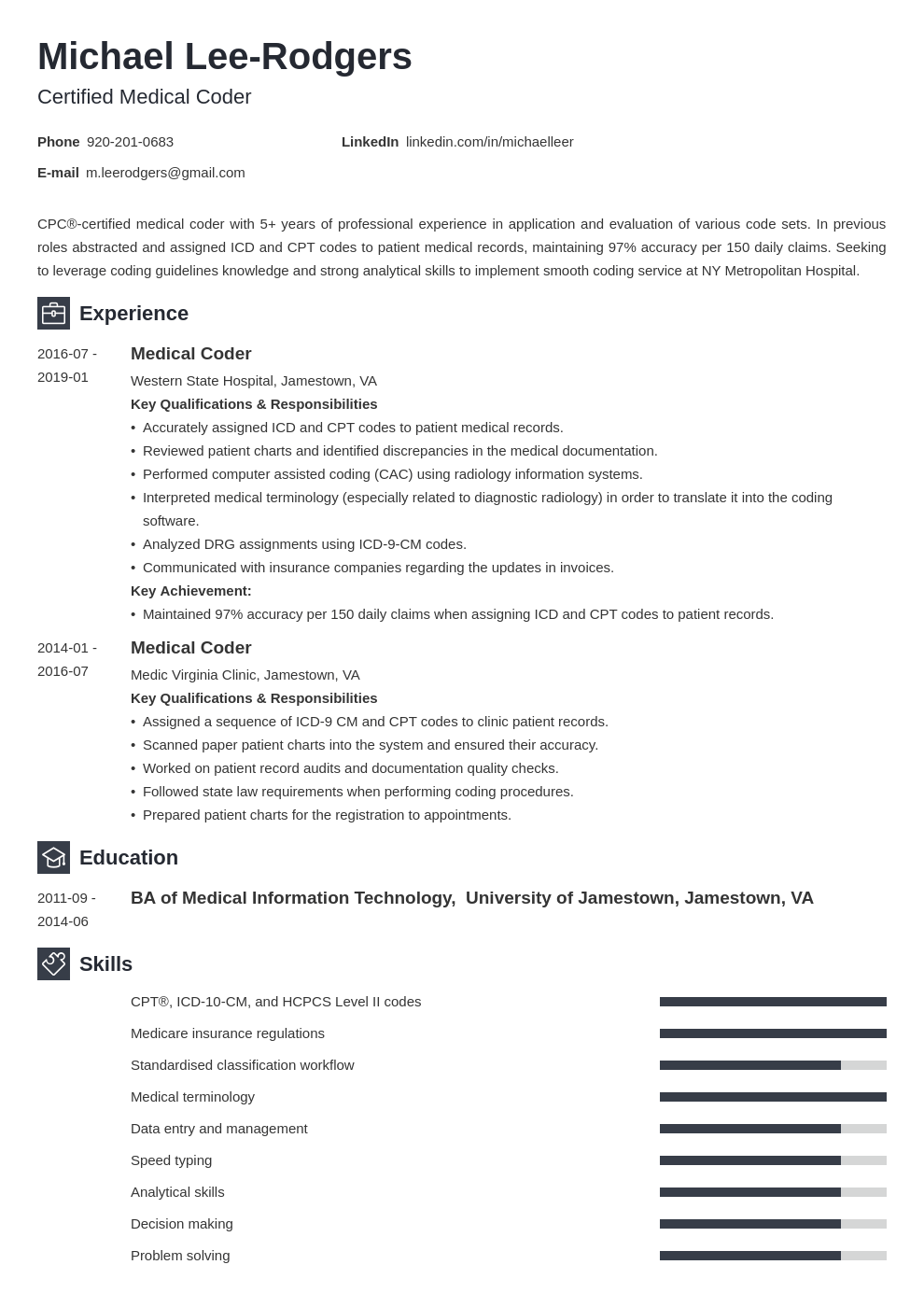
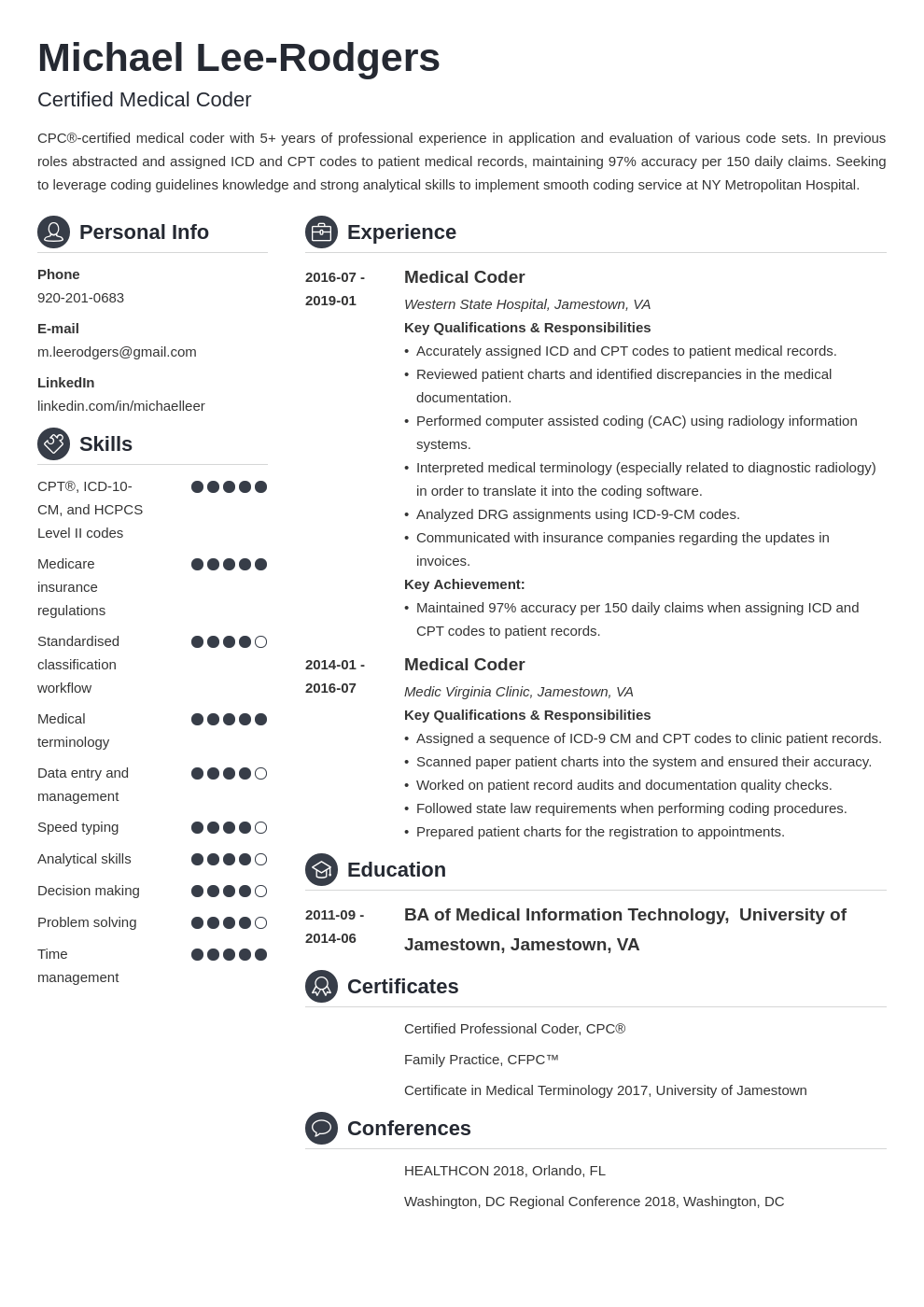
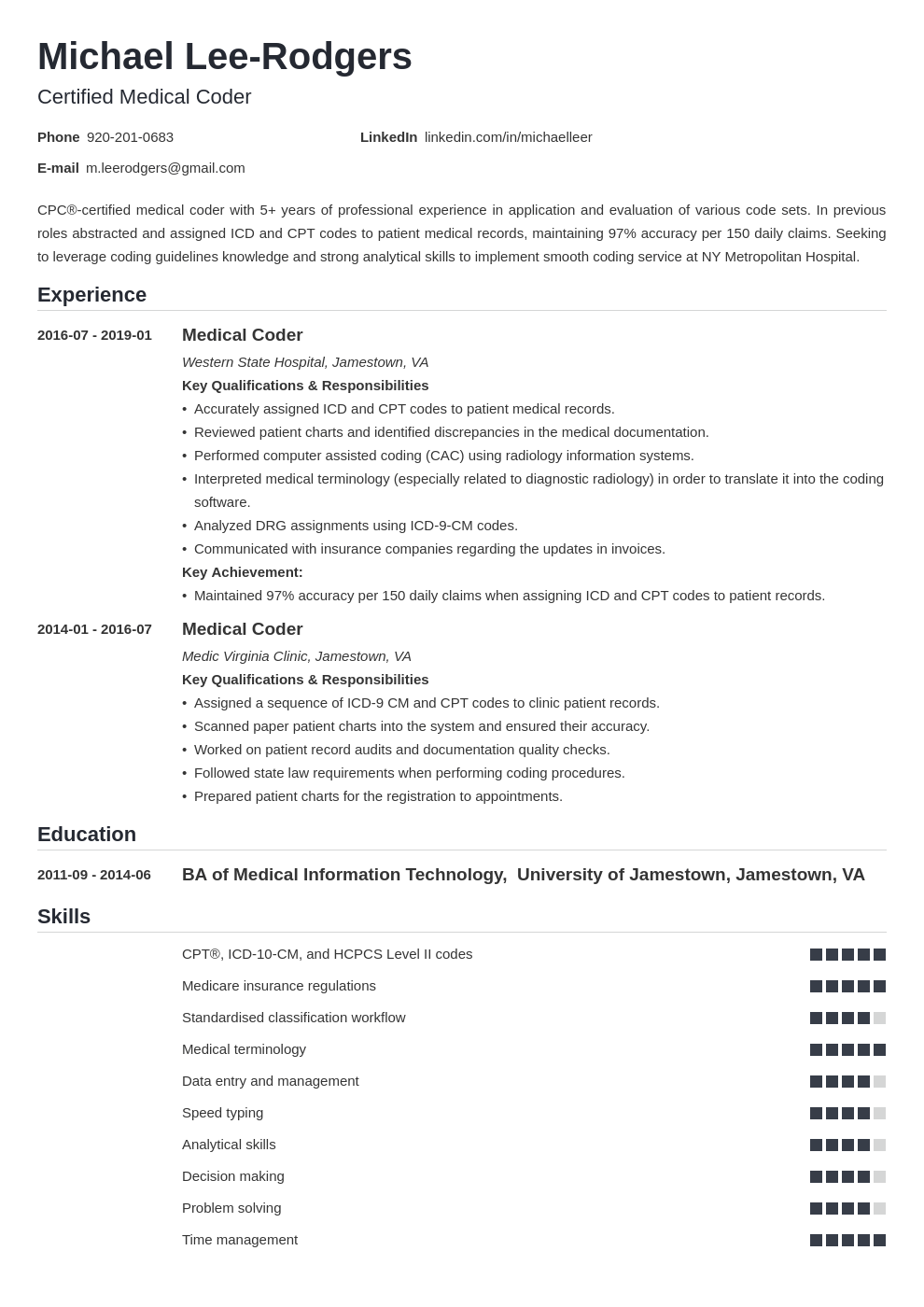
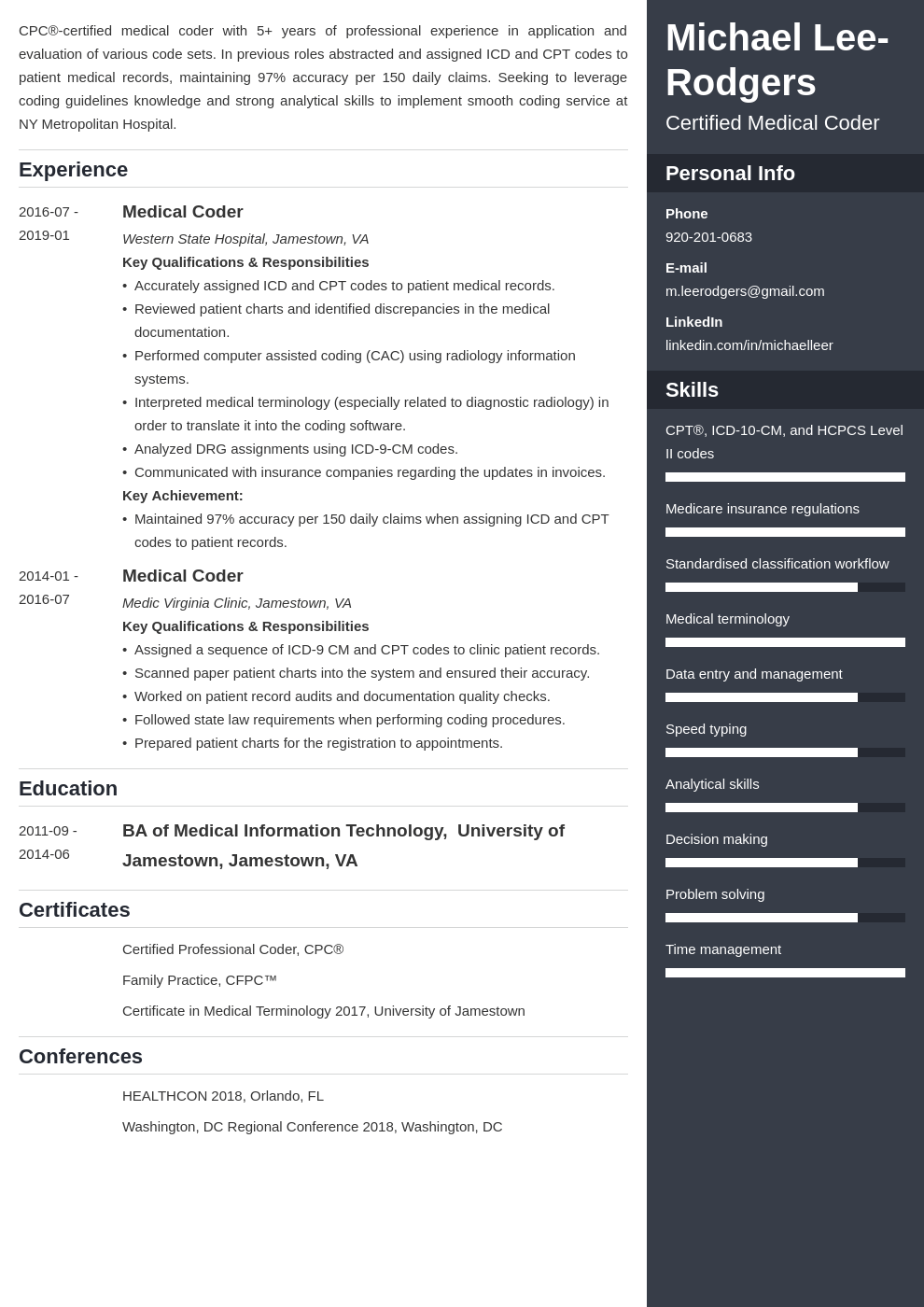
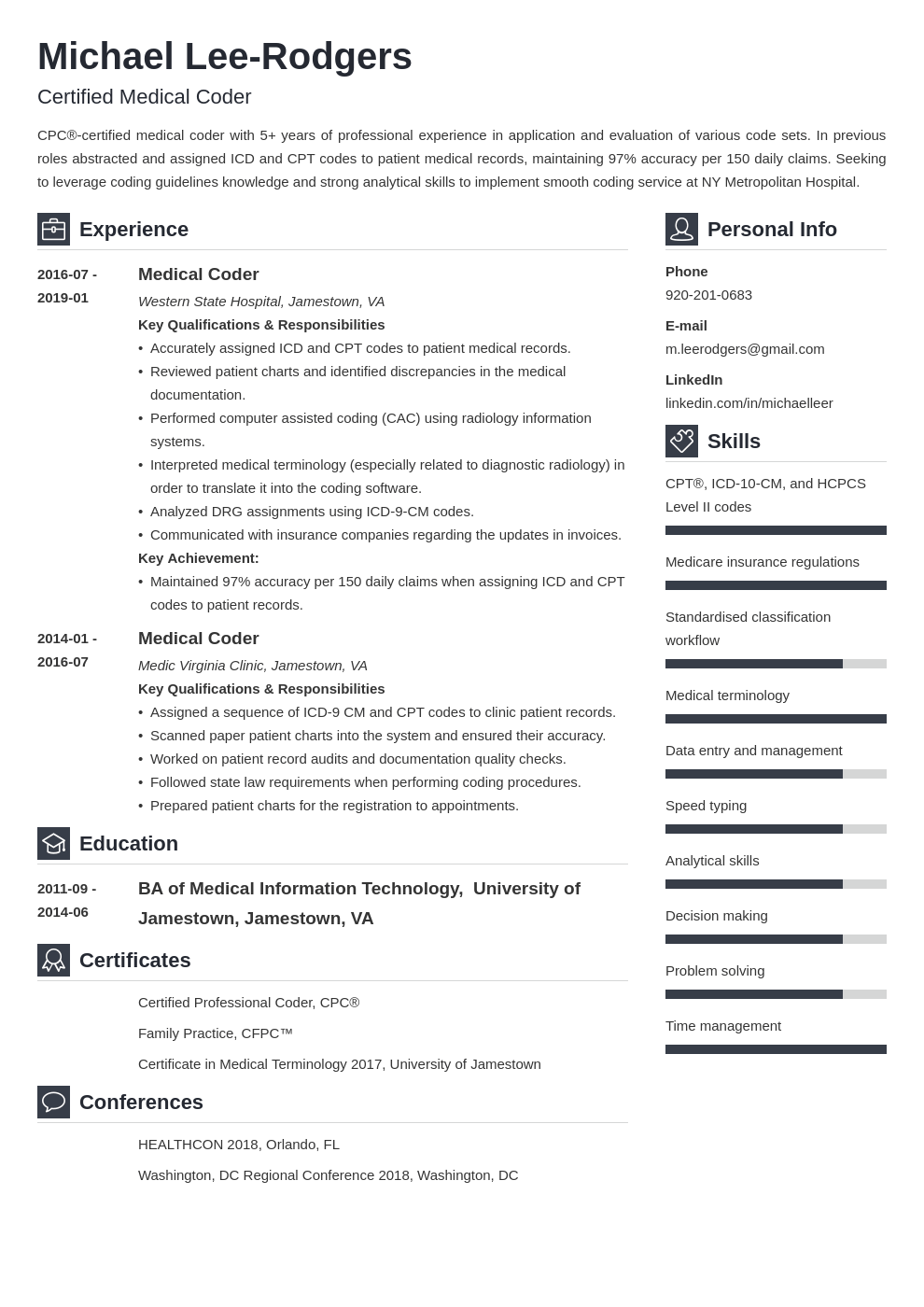
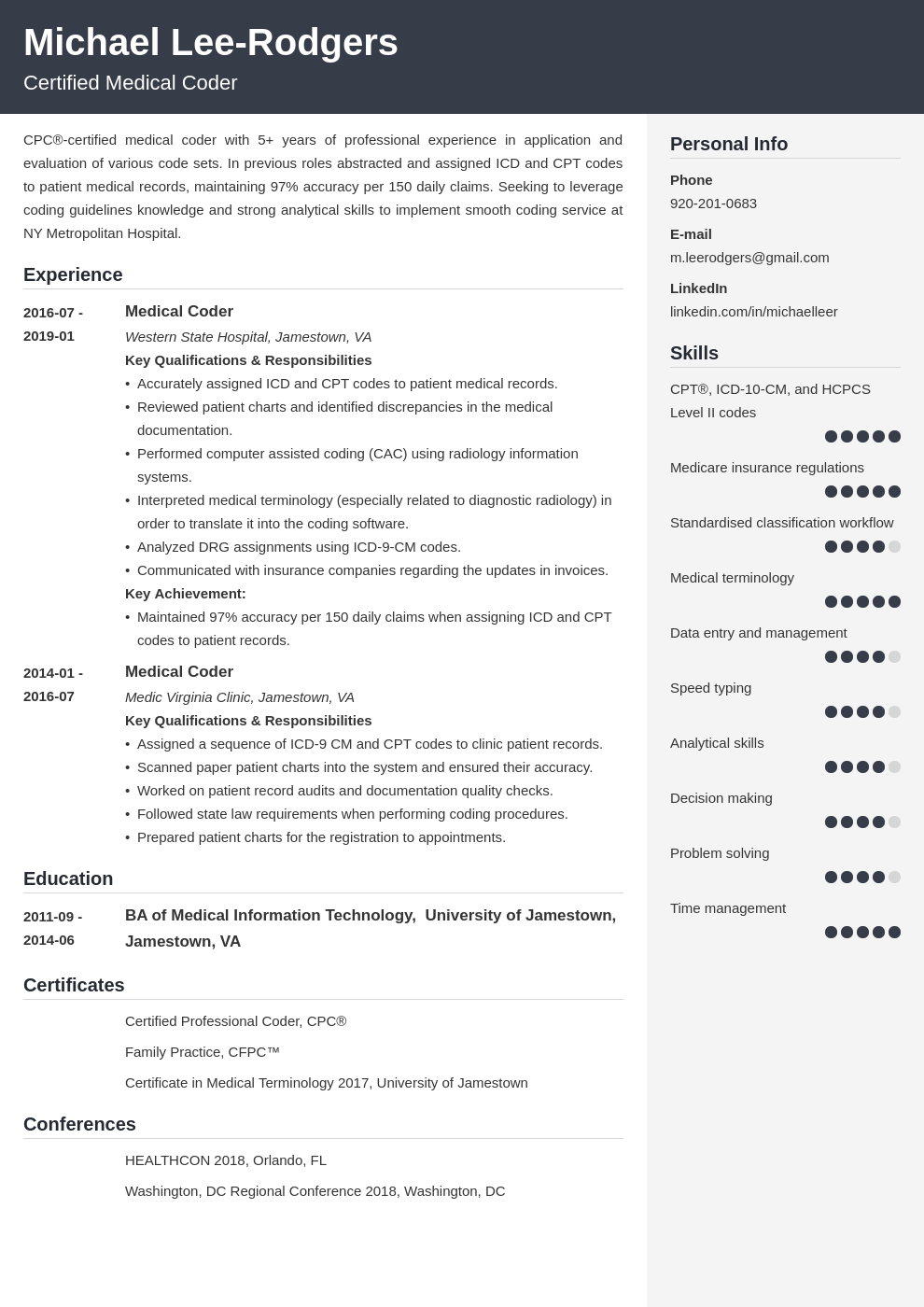
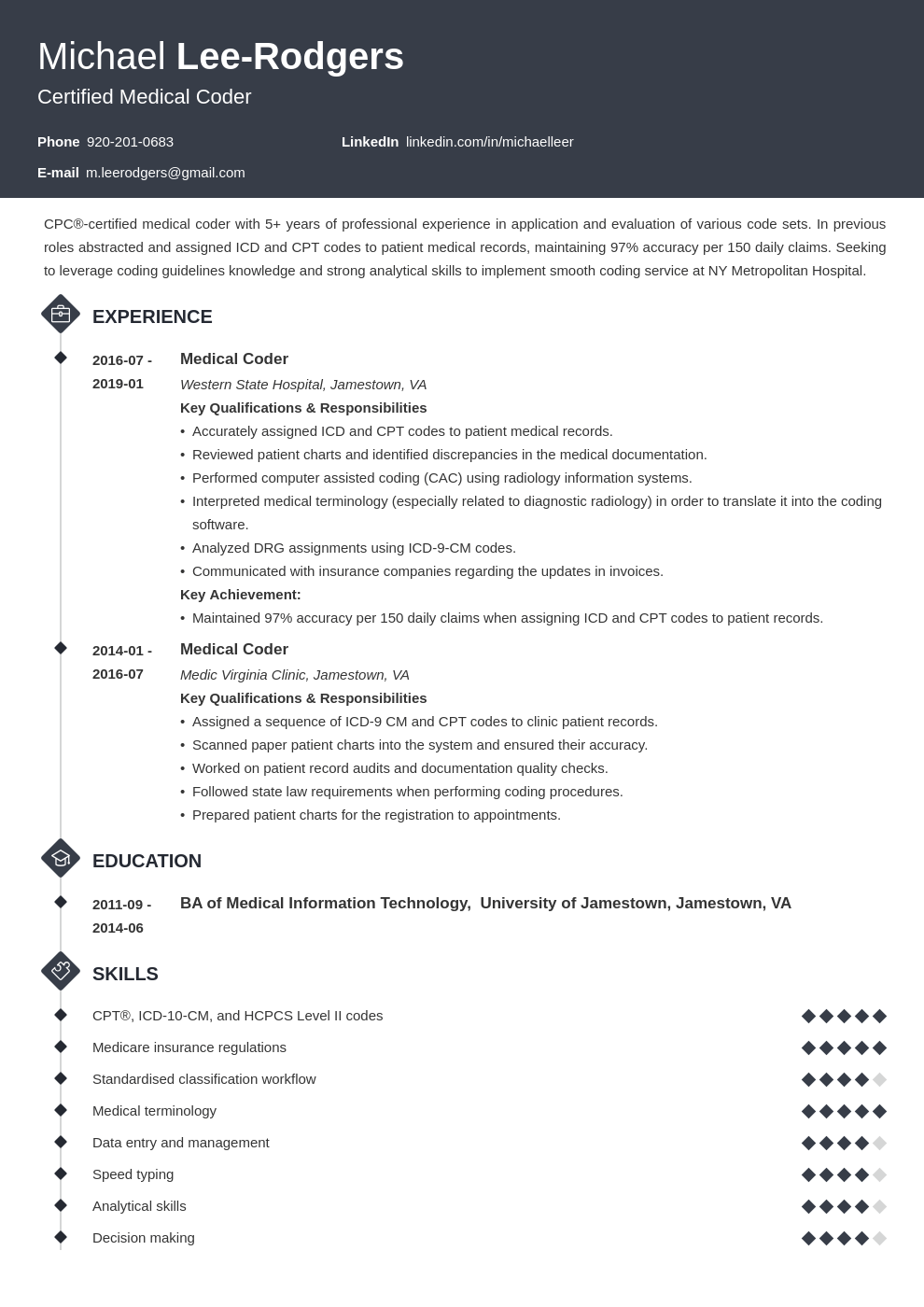
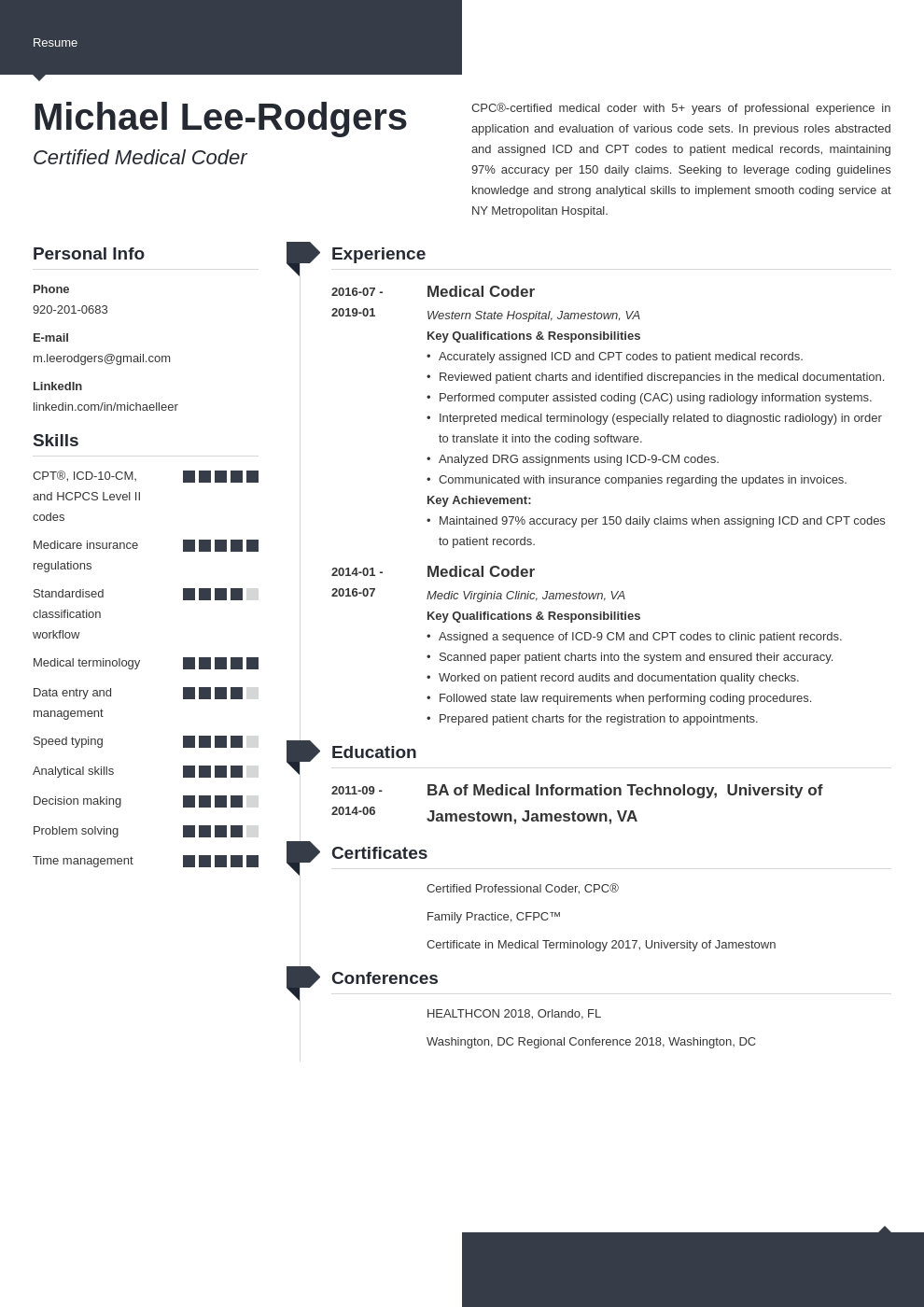
We’ve combed the Internet to select 100+ best resume icons. They’re all FREE to download and ready to use on your resume. Check them out now!
Set career goals that fire you up like something Elon Musk just tested on the launchpad. Learn to pick professional goals you can meet + see how to describe them in a job interview.
Post a resume on LinkedIn to make it easy to download by recruiters. But focus on the profile for true benefit.

